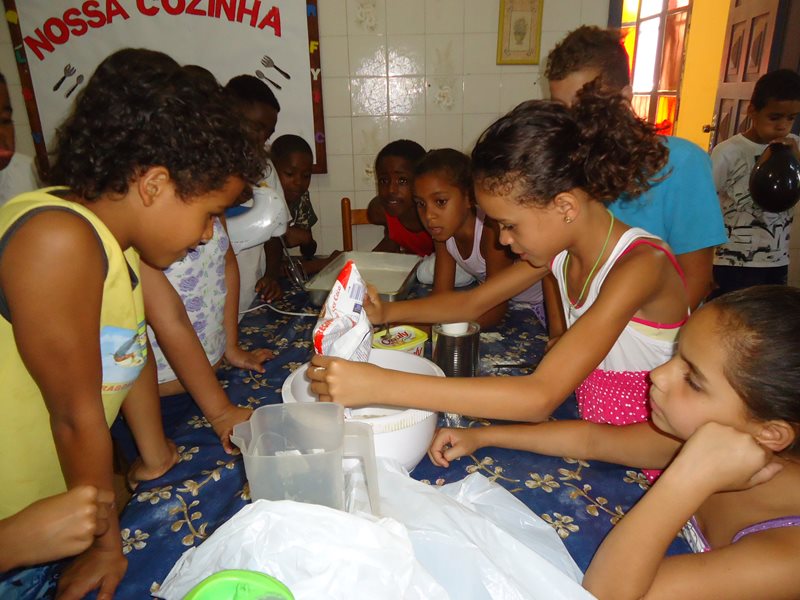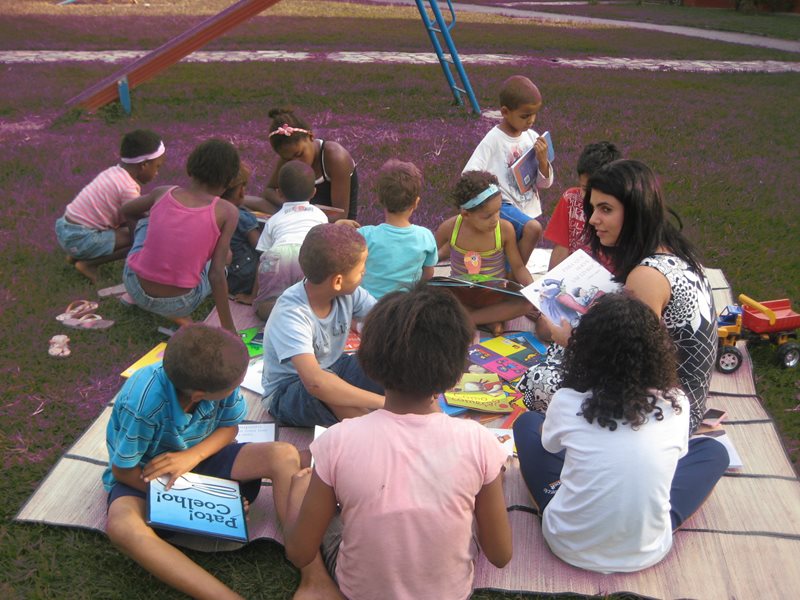Government social programmes have achieved great improvement, but much work remains to be done

Rio de Janeiro, capital of the state of the same name, has a population of approximately 6.3 million and is located in southern Brazil. It is a popular tourist destination and its famous Copacabana beach and carnival attract thousands of visitors from around the globe every year. It was the capital of Brazil until 1960.
Despite gradually improving living conditions in other parts of the country, many internal migrants continue to come to Rio in search of opportunity. This has led to overpopulation and the creation of so-called “favelas”, the shanty towns that sprawl across the hills surrounding Rio. Living conditions here are often precarious, despite government efforts to improve people’s situation. Child labour, malnutrition and dropping out of school are common among children from these areas.
In one of the world’s most unequal societies, children from all backgrounds deserve a chance
In recent decades, Rio has seen an increase in organised crime, drug trafficking and violence: in 2008, for example, over 50,000 people were murdered in Brazil. In preparation for the 2014 FIFA World Cup and the 2016 Summer Olympics, efforts to control violence have increased, with police regaining control over neighbourhoods previously run by gangs. These initiatives have indeed yielded results, but the murder rate remains very high, and the proportion affecting 15-24 year olds has even increased.
Brazil remains a deeply unequal society, with the wealthiest ten per cent of Brazilians receiving 42.7 per cent of the nation's income, while the poorest ten per cent receive a share of less than 1.2 per cent. Some even go so far as to call this “social apartheid”, with the middle classes shielding themselves from the poor with gates, walls and private schools for their children.
What we do in Jacarepaguá

SOS Children’s Villages Rio de Janeiro-Jacarepaguá began its work in 1982.
Strengthening families: The SOS Family Strengthening Programme provides much needed support to families who are at risk of breaking down. We aim to reach out to those who are especially vulnerable. We reach around 300 children. Each family needs different assistance. We also run workshops on children’s rights and raise awareness on key issues affecting children and young people.
Care in families: For children from Rio who are no longer able to live with their parents, three SOS families can provide a loving home. In each family, the children live with their brothers and sisters and are affectionately cared for by their SOS mother. The Some SOS families live in the community.